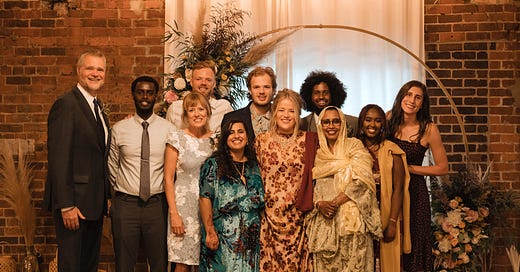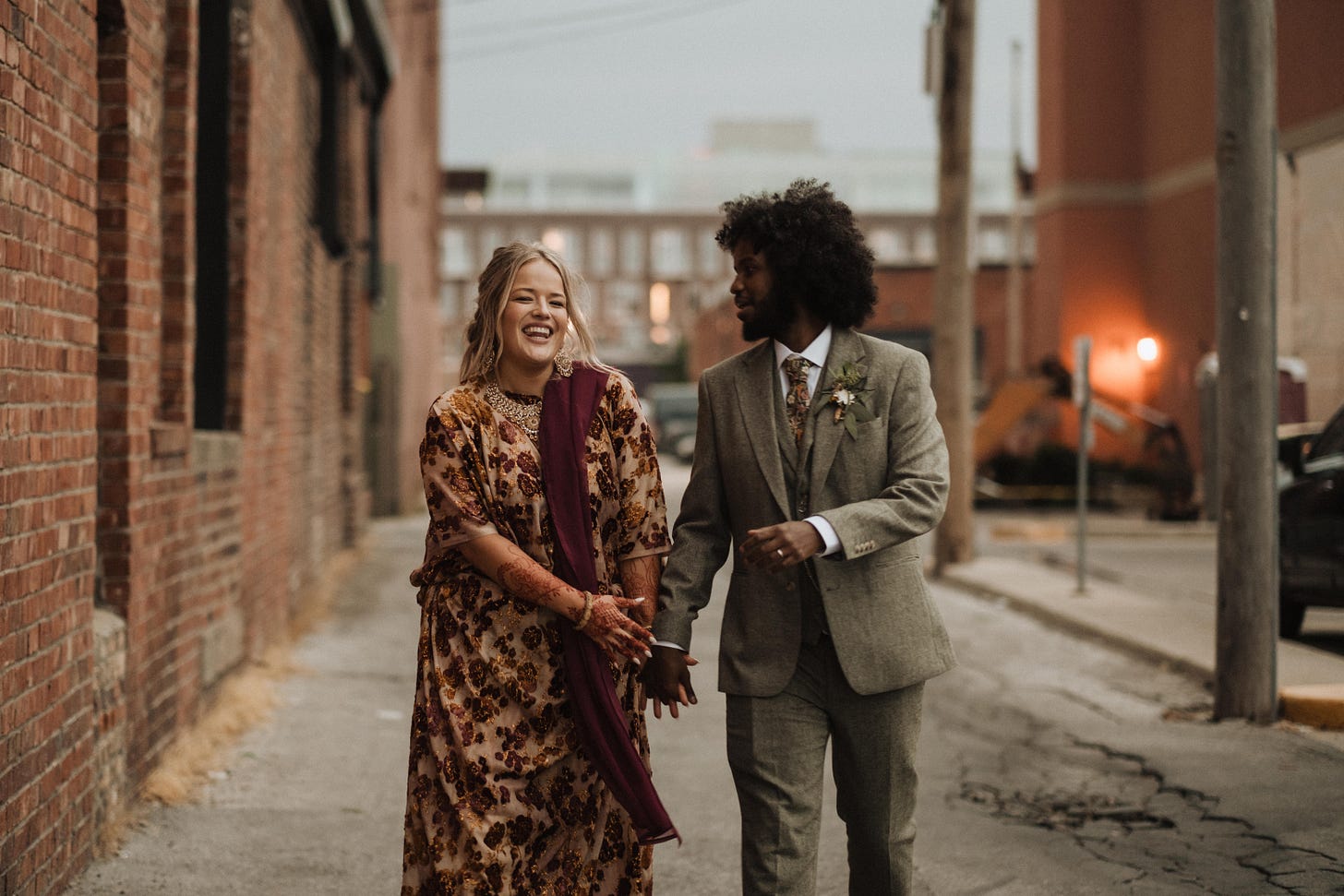There are several articles and open letters circling Substack right now asking why the founders are allowing Nazis to profit on their website.
It’s a fair question. It’s one I’d like answered as I take part in this platform. The answer is going to shape the future of my writing.
People who are a lot smarter than me have written about it, and I invite you to read their work.
I think this post misses the point of the issue - which is that literal Nazis are able to make money on this website, their ideas proliferate to those who are searching for a community to accept their hateful ideas (especially as they are interviewed and promoted by other publications), and Substack ultimately makes a profit off of these evil people. I do, however, appreciate how this piece breaks down what DOES work about Substack and how this platform is offering a much different corner of the internet. We’re able to curate our communities here, which leaves much of the BS out of our line of sight if we so choose. I can reach an audience without the support of any major publication. Ultimately, this is what complicates leaving this platform if it comes to that.
This is insight from a writer I respect.
I struggle, as I imagine many do, with extending my belief of no censorship to people with abhorrent views. But I think it’s important, and I’m trying. I’m currently reading Opinions by Roxane Gay, and she states repeatedly that “freedom of speech is not freedom from consequence,” and that’s ultimately what my opinion on this matter comes down to. These folks can write whatever they want, but they should not be able to profit off of it.
And this is an article from The Atlantic from which much of this conversation started.
I’m ultimately waiting to see how the founders respond to the situation, and if the Iowa Writers Collaborative comes up with a different home for our work that is as effective and rewarding as Substack has been. As we discussed this amongst our group, another member of the collaborative made a great point: “It seems no platform is clean. I use Twitter and Facebook, which abide and invite all sorts of mayhem…I am not aware of alternatives. If I were to drop Substack right now…[I] would have no voice to call out fascism in Iowa.”
Anyway, I’ve written more about this than I intended to originally. But I believe it deserves this level of thought, and as I grow in my writing career, I want to approach every complex issue with care and consideration.
In the meantime, to shed these feelings of dread, I thought I’d share a piece of work that explores kindness, inclusion, family, and how we can be better for one another.
I originally published this piece on CultureALL’s blog back in July.
The ultimate goal of CultureALL is to elevate individuals' behaviors and attitudes to a higher level of acceptance and collaboration for the benefit of our region. We do this through authentic, multicultural experiences that lead to a greater appreciation of diversity. We also work with businesses and corporations on their DEI planning to promote inclusivity within the workplace. If you are in need of cultural education or support in your DEI journey, please contact us a Explore@CultureALL.org.
Karin Ibrahim grew up acutely aware of the inequities around her.
As a child in Milwaukee, she looked around and understood she lived in a segregated city. Her dad was a Lutheran pastor. Her grandmother traveled to Palestine 30 times throughout her life to work on peacekeeping efforts. Karin herself went on to become a teacher of English as a Second Language (ESL) and the advisor to a student organization known as C.O.R.E. (Community of Racial Equity) at Urbandale High School.
Her understanding of social disparities grew when she met and married Mubarik, the son of a Somalian refugee and an immigrant from the U.K. Her brother, Anders, also married Hoda, who came to the U.S. as a refugee from Yemen. As Mubarik and Hoda became integral parts of Karin’s family, it became clear that the family had more to learn to ensure the newcomers felt welcome, safe, and supported.
The Hansen/Ibrahim family showed their love and support by learning to talk less and listen more as a way to work through cultural differences and grow as a family. These skills helped each family member engage more deeply with other cultures around them and develop as welcoming, inclusive community members.
A Midwest State of Mind
Mubarik’s mother was pregnant with him when she came to the UK as a refugee from Somaliland. Karin was raised in Wisconsin by Scandinavian Lutherans with deep Midwestern roots.
Karin’s politically active and justice-centered family already possessed an awareness of what families like Mubarik’s experience. But welcoming Mubarik and Hoda, both of whom practice Islam, required a deeper shift in practices and behaviors.
The Hansens now plan family meals around the Muslim concepts of “halal” and “haram” to accommodate their family members. It was awkward at first.
“Growing up in the biggest pork producing areas in the country, it’s hard to make dietary changes without feeling like you’re missing out on something. But we talk a lot about the difference between intention and impact," Karin said. "Through conversations and just practicing the routine of not including pork products in our meals, my parents are the best hosts ever. It's so helpful that Mubarik and Hoda are so understanding and willing to help our family learn. We are better because of them.”
The family makes it a practice to engage with tough conversations to work through these moments of discomfort. Both Hoda and Mubarik have complex layers to their identities. Interacting with the refugee and immigration systems, practicing Islam, and living in Iowa as people of color requires exceptional listening and an openness to learning – on all sides.
Karin is epecially proud of how her father has adjusted for his loved ones.
“He’s found non-alcoholic beer, and he looks at different types of pork-free sausage,” Karin said. “He’s come so far. He understood that the impact of his actions were different than what his intentions were.”
Understanding the Effects of the System
Mubarik and Karin spent the first five years of their relationship living in different countries. Gaining citizenship status for Mubarik was a daunting task filled with endless amounts of paperwork and bureaucracy. After witnessing first-hand the struggles of navigating the difficult U.S. immigration system, the couple realized how difficult the process would be for immigrants and refugees with less education, access, and English-speaking skills.
Karin sees the issues caused by the immigration system every day as an ESL teacher. Her students' parents often work low-paying jobs with non-traditional hours. Kids who deal with trauma and worry about the fate of their families face extra barriers that make it harder to succeed in school.
“It's hard to have a system that thrives on parental supervision and involvement and engagement when our parents have to work jobs that aren't 9 to 5. A lot of times our parents are looked at as not engaged and (as if) they don't care what happens to their kids, when, in fact, it's the opposite,” she said. “Some people want to ask, ‘Why can’t you learn? Why are you talking back to your teacher? Why are you sleeping in class?’ But our systems are not built to support these kids. Period.”
Along with understanding the effort it takes to navigate the immigration system, Karin and Mubarik also relate to the loneliness that comes from living far away from home and family. They’ve made it a point to connect with immigrant and refugee families to offer them a safe space in this new land, often using the multicultural skills they developed within their own family.
The Ibrahims have become friends with a family from Afghanistan. Working closely with Des Moines Refugee Support, Karin and Mubarik provided guidance and encouragement as the family improved their English skills, purchased two cars, and worked to find a sense of belonging in this new place. The Ibrahims watched the family members take ownership of building their lives in Iowa.
“Mubarik and I really focus on staying away from saviorism as much as we can,” Karin said. “We hope it helps them feel a little more relaxed and know that somebody has their back. Ultimately, we work on finding ways family can liberate themselves in the space they’re in.”
The Midwest Creative is a proud member of the Iowa Writers Collaborative. Please consider a subscription to my colleagues’ work to support storytelling across the state of Iowa. All of these authors provide content for free, with paid subscription options. Pick one or more, and help sustain this movement.







Great piece, Macey.